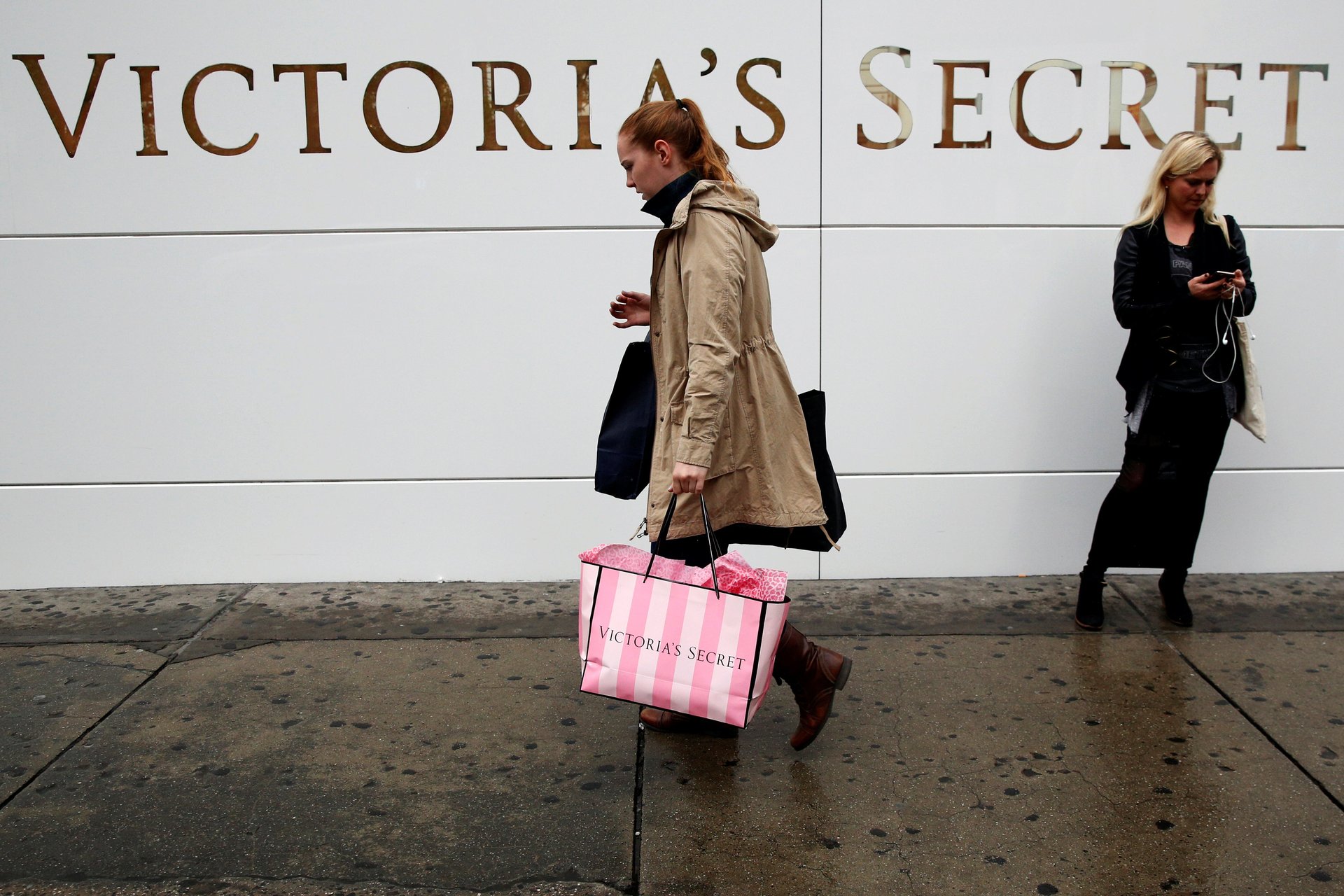The US-China trade war might make your bra more expensive
Retail stocks are being hit hard in the US-China trade war, which escalated on Monday after China announced plans to retaliate against the US increasing tariffs on certain Chinese goods to 25%. China plans to implement its own tariff hikes on US imports next month.


Retail stocks are being hit hard in the US-China trade war, which escalated on Monday after China announced plans to retaliate against the US increasing tariffs on certain Chinese goods to 25%. China plans to implement its own tariff hikes on US imports next month.
Alongside retailers like Gap and Abercrombie & Fitch—companies that rely heavily on Chinese vendors—Victoria’s Secret owner L Brands fell over 5% on news of the upcoming hikes.
L Brands, which also owns Bath & Body Works and Victoria’s Secret’s Pink brand, is heavily reliant on its Chinese suppliers, and counts the nation—along with the US, Sri Lanka, Vietnam, and India—as one of its main sources of imported goods.
What’s more, Beijing is one of few places where the Victoria’s Secret brand continues to resonate. The tone-deaf marketing that has alienated Victoria’s Secret’s American market appeals to Chinese audiences; as Cathaleen Chen writes for the Business of Fashion, “while its decades-old marketing strategy—equating beauty with being desired by men—may have run out of steam with US customers, it is a relatively fresh concept in China, where public displays of sexuality are only just losing their stigma.” VS is also the fifth most popular women’s underwear brand on Alibaba’s Tmall, a major Chinese e-commerce site.
To cement its status in China, Victoria’s Secret hosted its first fashion show in Shanghai in 2017. In its most recent earnings presentation, L Brands said it plans to open another 15 stores in China (in addition to the 53 existing stores), and considers the country “an extremely important market.”
While China sales have lifted L Brands’ international business, the segment still only accounts for 6% of the company’s overall sales, meaning that tariffs won’t necessarily be devastating. They could, however, put a damper on an already struggling brand’s plans to get ahold of a valuable market, and raise prices for US customers who—unlike in VS’s golden days—have plenty of other options.